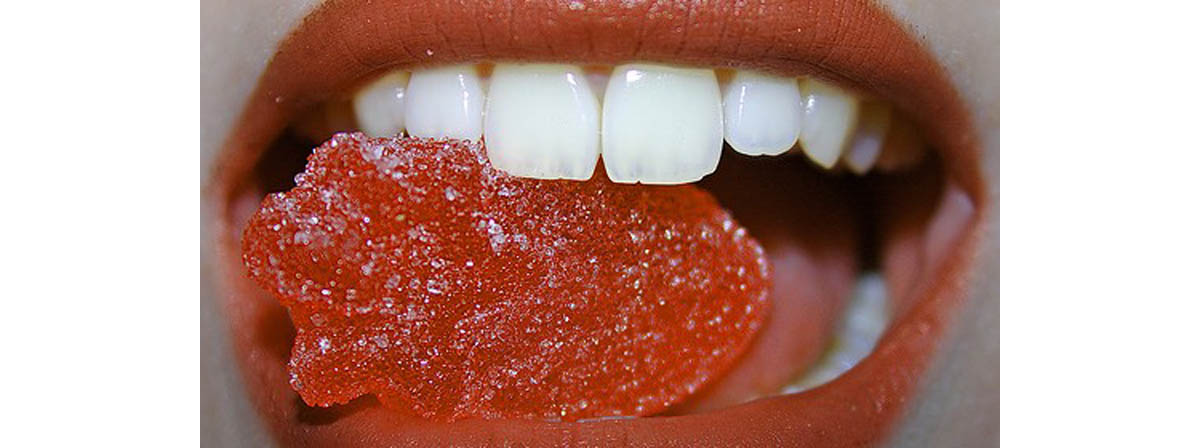Guzzling down cans of your favorite drink and munching your favorite snacks can rot your teeth — something everyone is familiar with by now. The modern western diet, rich as it is in refined carbohydrates and sugars, can cause tooth decay and adversely affect your health in more ways than you might know.
The Modern Diet and the Evolutionary Process
The modern diet and our eating habits have had a considerable impact on our evolution as a species. An important study conducted by scientists to examine the evolution of our teeth over the past 7500 years shows that modern day human beings have less diverse oral bacteria than our predecessors once did. Scientists believe this to be the cause of the high prevalence of chronic oral diseases in the current era.

The study was conducted by researchers from the University of Adelaide, Australia, University of Aberdeen, Scotland, and the Wellcome Trust Sanger Institute, Cambridge, England and was published in Nature Genetics. As part of the study, the researchers analyzed the DNA of calcified bacteria found in the teeth of humans ranging from prehistoric times to the modern day. This has helped them analyze the evolution of the human diet over time, and the corresponding behavioral changes of human beings.
The study was led by Professor Alan Cooper who pointed out that this was the first study spanning 7500 years which analyzes the evolution and changes in bacteria and their health consequences.
To study the effect of changes in the diet pattern of humans, 34 European skeletons, ranging between the ages of 20 and 60 and dating from Mesolithic to Medieval times were analyzed. The ancient microbial DNA present in the calcified dental plaque was examined. The researchers also sequenced the currently known form of oral pathogens, namely Streptococcus mutans and Porphyromonas gingivalis.
When human beings transitioned from the hunter-gatherer stage to farming, the consumption of more barley, wheat, and sugar started to change the oral ecosystem, and more of the gum disease causing bacterial species started to flourish.
With the beginning of the Industrial Revolution, when humans started eating processed sugar and flour, the oral ecosystem changed once again and more of the now famous decay-causing bacterial species started to flourish in our mouths.
With each major change in eating habits, the diversity of oral ecosystem declined dramatically. A greater diversity of ecosystem signifies a more resilient and healthy ecosystem. Therefore, a gradually declining oral biodiversity can explain the high prevalence of dental diseases in modern human beings. The study further highlights the mismatch between our modern diets and the rate of gum diseases and tooth decay. It also highlights the point that our bodies are more adapted to our evolutionary lineage and have not completed adapted to this changed environment that we have ended up creating for ourselves.
Effect Of Modern Diet On Dental And Overall Health
As per a study, an average American consumes about 125 to 175 pounds of sugar per year which translates to about 1/3 to 1/2 pounds of sugar consumption per day. Table sugar and high fructose corn syrup comprise a large part of this sugar consumption. Grains, which are rich in starch are broken down into sugar while digestion in the digestive tract. Refined grains get converted into simple sugars even faster. The health implications of refined carbohydrates on our bodies are listed below:

Refined carbohydrates decrease nutrient reserves
Carbohydrates are broken down in our body and converted to simple sugars. This process of breakdown of carbohydrates requires various nutrients and minerals such as B vitamins, vitamin C, chromium, magnesium, and vanadium. When we consume whole foods, these vitamins and minerals are present in them along with the carbohydrates. However, consumption of refined sugar implies that the body has to get these vital minerals and vitamins from other sources. There is no doubt about the fact that sugar contains bacteria that rot your teeth. But another reason why sugar causes tooth decay is because sugar consumption leads to a depletion of mineral reserves from your body. This can weaken your teeth and bones to the core.
Refined carbohydrates adversely affect the brain
Refined carbohydrates deplete the body of the vitamin B reserves which are vital for the production of neurotransmitters and cellular energy. The human brain consumes a lot of sugar from the body and the level of sugar in the brain is affected by the amount of sugar in your blood. Too much sugar in the blood can stimulate your brain thereby causing irritability, hyperactivity, and nervousness.
Refined carbohydrates stimulate insulin production
The pancreas regulates the amount of sugar in the body so that adequate levels of sugar are present in the blood for the proper functioning of the brain. The pancreas secretes insulin that helps in storing excess sugar present in the blood. It also secretes glucagon which brings sugar back from storage into the blood. The production of insulin depresses the production of glucagon and vice versa.
An excess of refined carbohydrates in the blood leads to excessive production of insulin for maintaining adequate supply of sugar to the brain. This results in a lowered production of glucagon and when all the sugar present in the blood is used up, the body has to work overtime to draw more sugar from the storage. This might lead to hypoglycemia, a state wherein blood sugar levels fall below the normal levels, causing sluggisnhess. Higher production of insulin can also result in excess fat, adrenal fatigue, chronic inflammation, and heart disease.
Refined carbohydrates can spike tooth decay
When we eat, a tiny film of plaque which comprises bacteria, forms on our teeth and gums. When we consume refined carbohydrates and sugars, the bacteria present in the plaque produce acid which typically attacks our teeth for more than 20 minutes. This results in tooth decay.
Good oral health has a direct linkage with the kind of food that we eat. Therefore it is very important to limit the consumption of foods and beverages that are high in refined sugars. The American Dental Association recommends that you must limit eating and drinking between meals and when eating you must go in for nutritious foods that are rich in whole grains, minerals, and vitamins. Brushing and flossing regularly and maintaining a check on non-nutritious snacks and sugar-rich beverages will help control plaque formation and stop tooth decay.
- “Sequencing ancient calcified dental plaque shows changes in oral microbiota with dietary shifts of the Neolithic and Industrial revolutions”, by Christina J Adler, et al. Published in the February 2013 issue of the Nature Genetics, accessed on June 14, 2013
- “Diet, nutrition and the prevention of dental diseases”, by Paula Moynihan, et al. Published in the February 2004 issue of Public Health Nutrition, accessed on June 14, 2013.
- Photo courtesy of Jose Carlos Castro by Flickr : www.flickr.com/photos/carloscastroweb/1462533399/
- Photo courtesy of zeevveez by Flickr : www.flickr.com/photos/zeevveez/7155352877/


Your thoughts on this